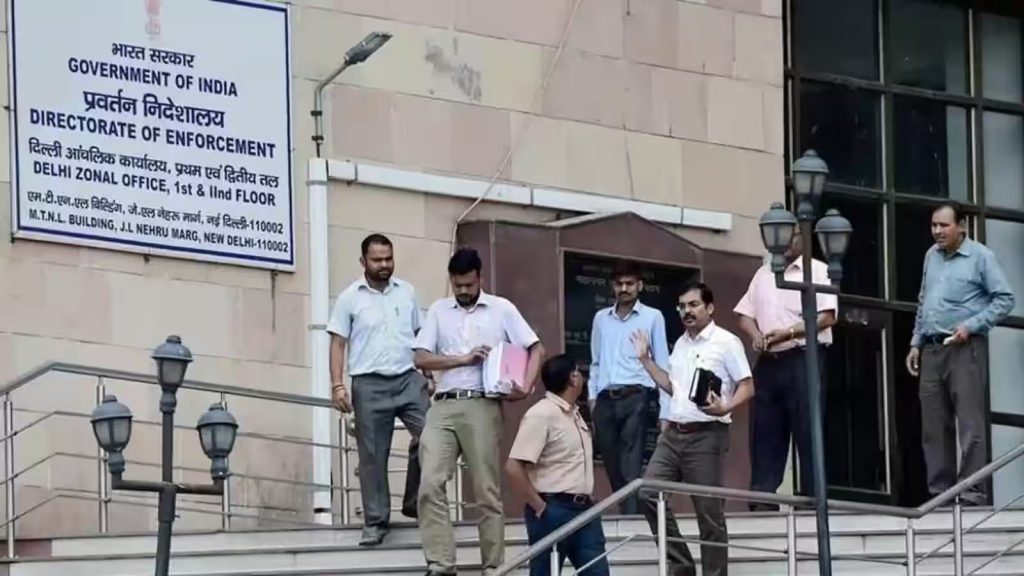The arrest on 31 January evening and subsequent remand of now former Jharkhand Chief Minister Hemant Soren in Enforcement Directorate (ED) custody had come at a time when BJP had already succeeded in its “tod jore” (break and join) politics in the adjacent state of Bihar, wrecking an I.N.D.I.A alliance government and replacing it with one of its own bloc. Now the ED, as usual, seems hyperactive in getting in its net another Chief Minister – Arvind Kejriwal – of Delhi. All this is happening when the country is getting ready for the Lok Sabha polls a few months away. These developments are disturbing enough and pose a threat to democracy since Opposition-ruled states are being targeted in a controversial manner. At the very outset everyone has to accept, no matter which political party is concerned, there is no single party existing today of any worth that does not collect funds for organizational work and elections.
Every single party boss past, present and in future will mandatorily have to ‘amass wealth beyond justifiable means’ to operate a vast political machine at a state or national level. It is not as if those in power at the Center currently are not funding the functioning of their huge party or are refraining from doling out massive amounts of money to their candidates in Assembly and Parliament elections. Just that there is, at present, no superior authority in the Indian administrative system that would dare to identify, investigate and penalize those currently ruling the country.
For someone like Soren or Kejriwal, it is predictable that they would plead not guilty and complain of being made victims of political mischief as they both and their respective parties are trying to make out of the cases that have been launched against them. Yet, the timing and the manner in which Central agencies are going after Opposition leaders does raise suspicion of abuse of power for grabbing power.
Soren was arrested after a seven-hour grilling by the ED in connection with a money-laundering case linked to an alleged land fraud. This is suspected to be a pattern being followed by the agency to corner Opposition politicians apparently at the behest of their political masters. For this reason, it seems, Kejriwal is avoiding the ED like plague. He has, so far, refused to appear before it for the fifth time forcing the agency to move a Delhi court against him for skipping five summons in connection with what is now known as the Delhi liquor policy case. The court heard some submissions and put up the rest of the matter for “submissions and consideration” 7 February.
In the case of Soren, ED stated that land parcels spanning 8.5 acres were part of the criminal proceeds that the former CM allegedly acquired. ED stated that in a raid conducted 13 April, 2023, they unearthed several property-related records and registers. It said the whole criminal act was engineered by a “very large syndicate.”
Soren had no option but to be arrested and tender his resignation as CM, leaving the charge to one of his trusted ministers. His last ditch attempt to get relief from Supreme Court failed as the apex court asked him to approach the concerned High Court with his petition. He had challenged ED’s summons issued 22 January and 25 January contending that they were illegal, null and void.
It is for the judiciary to go into these allegations, but the arrest gives rise to more important questions. There is no denying the fact that the ED, under the Prevention of Money Laundering Act (PMLA) is vested with sweeping powers of arrest. Barriers for bail are very high in PMLA cases. The Supreme Court upheld these powers in a judgement in July, 2022. But petitions challenging the judgement are still pending before it. When the powers are used to target a Chief Minister, it does appear that it is not merely a routine case of law enforcement.
However, public perception of some Opposition leaders’ conduct is by no means flattering for which the leaders themselves are responsible. In Jharkhand alone since its formation 15 November, 2000, the state has seen six chief ministers and three President’s rule terms. In fact, Hemant became the third state CM to be arrested. Before him, his father Shibu Soren and Madhu Koda had been arrested. Only one CM, Raghubar Das of BJP, managed to complete his full term from 2014 to 2019 and is now Governor of Orissa.
Koda was imprisoned for corruption during his tenure from 2006 to 2008. He formed a government in alliance with the UPA. He was allegedly involved in a mining scandal and was accused by the CBI and ED of taking bribes for allocating coal and mining blocks during his tenure as CM. After his arrest in 2009, Koda was released on bail in 2013. In 2017, he was convicted and sentenced to three years in prison with a Rs 25 lakh fine.
It is an open secret how Central agencies are deployed by ruling parties to achieve their political ends. If Opposition leaders by their acts of commission and omission give their opponents a handle to go after them, they are more to blame than anybody else. The BJP has made a political necessity out of it by either getting such politicians into its fold and whitewashing their alleged offences to form a new government or hounding them out and coming to power with breakaway groups.
This is an unhealthy trend that will not end soon but will keep vitiating the country’s political system.

